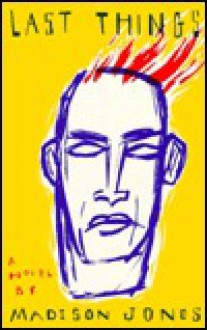Extollager
Well-Known Member
- Joined
- Aug 21, 2010
- Messages
- 9,271
Finished that second reading of Passage Through Gehenna. Once again I'm confirmed in my admiration for this author. This one reminds me of Charles Williams's Lilith-succubus novel Descent into Hell (and the titles are similar enough that I wonder if Jones had read Williams). As a novel of loneliness, it reminded me of Machen's Hill of Dreams. I don't mean to suggest Jones's novel is derivative, although it is certainly an impressive performance in the Gothic tradition at its best.
Recommended to Chronsfolk.
My next Jones will probably be a first reading of Forest of the Night, about which one commentator said:
----Synopsis ... does not begin to do justice to the power and subtlety of the story line, a well-made, virtuoso narrative rich and full with incident, urgent suspense, and complex, fully dimensional characters. Similarly a more abstract approach, focusing tightly on the basic themes and ideas that are dramatized in and by the narrative, tends to be schematic at the expense of the experience. Like all art, the novel has to be taken, first of all, as a sensory affective experience. It has to be felt before it can be considered analytically. The problem for the writer (and the reader) is compounded when the work is historical and set back in time far enough to be at least somewhat alien to the reader’s experience. The writer cannot allude to or easily summon up an alien and vanished world. It must be created by credible and authentic concrete details, by vivid sensory engagement. Here Madison Jones’s acute sensitivity to nature, not the sentimental pastoral of the urban dilettante, but hardscrabble knowledge of a working farmer, joined with an awareness of the mystery and implacable indifference of nature to our comings and goings, all our doings, pays off handsomely. From beginning to end of this story, the vast wilderness, touched hardly at all by the lonely farms and the few rude settlements that pass for civilization, broods over the action of the story. It filters through the leaves of tall trees and pays out shapes and shares of light and shadow. ......
During a considerable part of the story Jonathan suffers from a nameless fever and thus his perceptions are (long before “magic realism” came to North American attention) distorted and hallucinatory. At times he hears voices. So did the author, who writes in his autobiographical essay — “There are times in the woods when unexplained voices call to you.” The triumph of Forest of the Night is that the author has managed to translate those voices for us into a living language and to create a compelling, vividly realized story that questions some of our most cherished and comfortable assumptions.----
Recommended to Chronsfolk.
My next Jones will probably be a first reading of Forest of the Night, about which one commentator said:
----Synopsis ... does not begin to do justice to the power and subtlety of the story line, a well-made, virtuoso narrative rich and full with incident, urgent suspense, and complex, fully dimensional characters. Similarly a more abstract approach, focusing tightly on the basic themes and ideas that are dramatized in and by the narrative, tends to be schematic at the expense of the experience. Like all art, the novel has to be taken, first of all, as a sensory affective experience. It has to be felt before it can be considered analytically. The problem for the writer (and the reader) is compounded when the work is historical and set back in time far enough to be at least somewhat alien to the reader’s experience. The writer cannot allude to or easily summon up an alien and vanished world. It must be created by credible and authentic concrete details, by vivid sensory engagement. Here Madison Jones’s acute sensitivity to nature, not the sentimental pastoral of the urban dilettante, but hardscrabble knowledge of a working farmer, joined with an awareness of the mystery and implacable indifference of nature to our comings and goings, all our doings, pays off handsomely. From beginning to end of this story, the vast wilderness, touched hardly at all by the lonely farms and the few rude settlements that pass for civilization, broods over the action of the story. It filters through the leaves of tall trees and pays out shapes and shares of light and shadow. ......
During a considerable part of the story Jonathan suffers from a nameless fever and thus his perceptions are (long before “magic realism” came to North American attention) distorted and hallucinatory. At times he hears voices. So did the author, who writes in his autobiographical essay — “There are times in the woods when unexplained voices call to you.” The triumph of Forest of the Night is that the author has managed to translate those voices for us into a living language and to create a compelling, vividly realized story that questions some of our most cherished and comfortable assumptions.----
Last edited:



